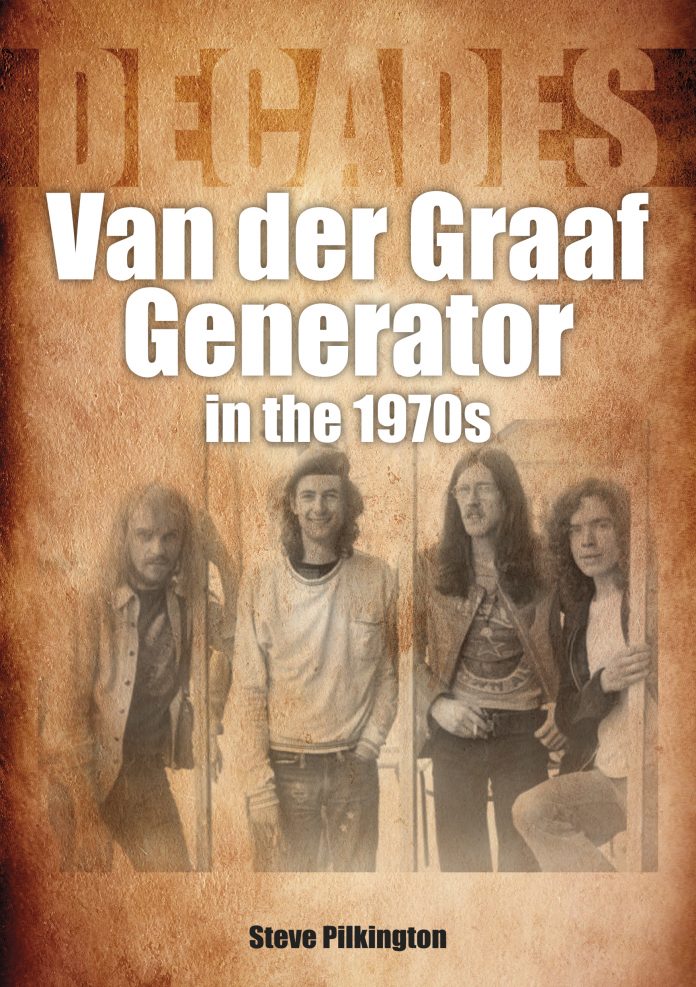Van Der Graaf Generator In The Seventies was written by Steve Pilkington* (Sonicbond Publications).
There’s always been a kind of glorious oddness about this band, and their refusal to conform to normal strictures of musical behaviour. Regarded by many as being the ‘dark underbelly of prog rock,’ Van der Graaf Generator (VdGG) were welcomed as pioneers into the unfolding genre of what became progressive rock in the early 1970s, even though they themselves didn’t necessarily believe they were. As band main man and guiding visionary Peter Hammill stated, ‘we were just trying to do something very new and different.’ Well, Steve Pilkington’s well-researched, extraordinarily detailed and rather splendid little tome, written with the full cooperation of the band and from the perspective of a fan, will guide you through everything VdGG did in the seventies and explain how and why they did what they did .. the albums, (I’d not realised Randy California had played on Hammill’s Silent Corner album), the gigs, the management hassles and the surprising fans .. who knew, before he spat phlegm at the world in 1976, John Lydon was a VdGG fan?
One of the strengths of this book is the sheer level of detail which contributes to an intriguing picture of the band during this turbulent decade without lapsing into anorak mode – who played on which album, the context of how albums and songs were created and the tensions which inevitably arise when creative individuals butt heads. Similarly, another plus point is the insight into the lyrical and intellectual backdrop of many of VdGG’s tunes, with songs like ‘The Boat of Millions of Years arising’ from Hammill’s fascination with Egyptology and Gog taking Jagger’s stance on Lucifer a stage or two further.
Throughout this extraordinary decade, VdGG released a total of seven albums, a few of which can be justly counted amongst prog’s high canon. In particular, between February 1970 and October 1971, VdGG released The Least We Can Do Is Wave To Each Other, H to He Who Am The Only One and Pawn Hearts, the latter being regarded by Peter Hammill as the ‘high water mark of the band’s early period.’ If they’d only ever released these three albums, their rep would still have been assured. As it was, they released several other superb albums in the seventies. Hammill also released eight solo albums through the same decade and, when you consider the quality most of these releases achieved, allied to the fact they were also a prolifically gigging ‘live’ band, with limited time to record albums (The Least We Can Do .. was recorded in only four days ), it was little wonder the band imploded at several points during this extraordinary decade, losing various musicians along the way.
Feted by Prog magazine in 2016 with an award for ‘lifetime achievement’ .. though, for this reviewer, it was somewhat soured by the absence of David Jackson due to enmity between band members, and who wasn’t even told of the award until afterwards .. VdGG still continues to this day, though as VdG, releasing occasional albums and gigging to a loyal and dedicated fanbase, and with Peter Hammill having achieved ‘cult’ status. Steve Pilkington’s very enjoyable book will take you back through all the steps they took in the seventies to achieve their iconic status in Prog rock.
(*Steve Pilkington edits Velvet Thunder, an online music publication well worth a look.)






















